In the contemporary business landscape, the intertwining realms of Customer Relationship Management (CRM) and Marketing Automation have emerged as pivotal forces driving organizational success. Let's embark on a comprehensive journey, delving into the intricacies of CRM automation. Its seamless integration with marketing processes, and the nuanced comparison between CRM and marketing automation.
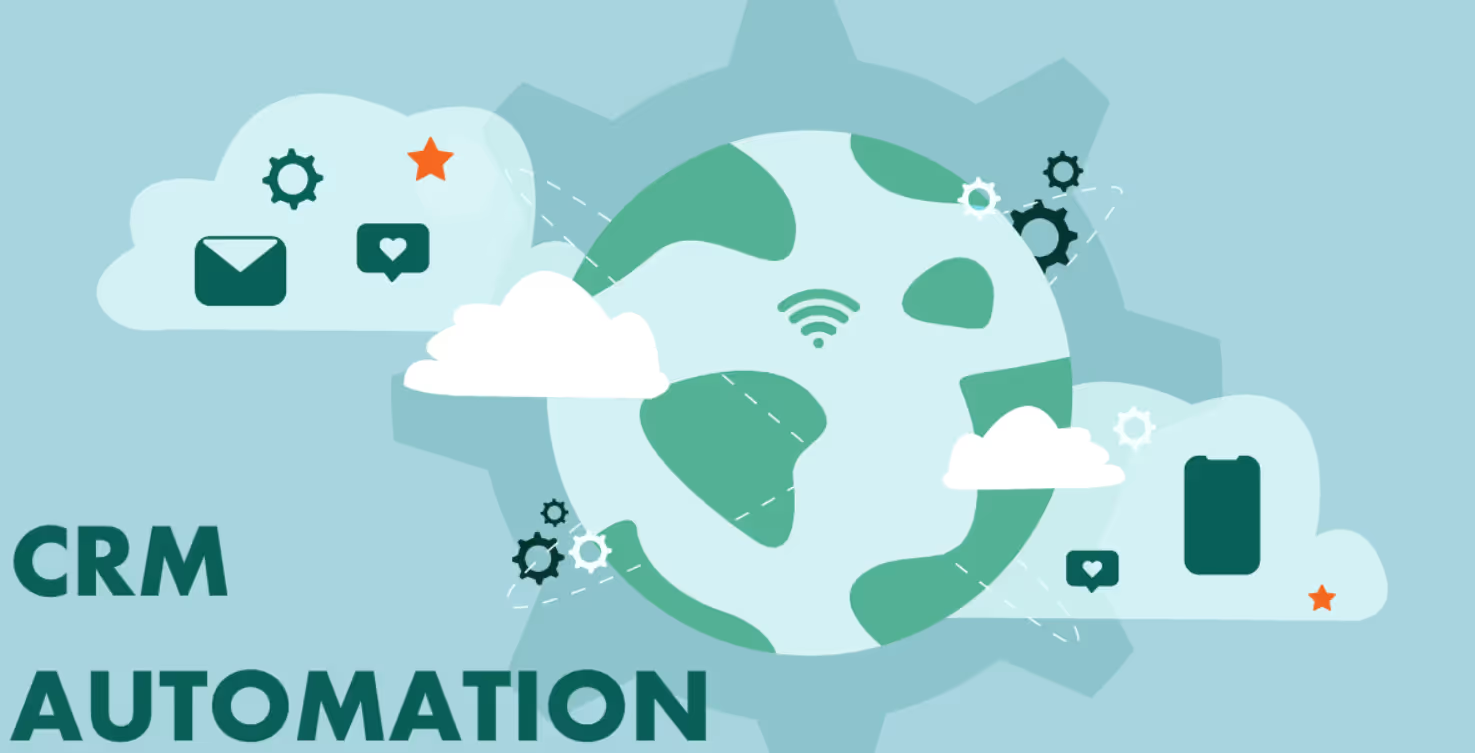
Understanding CRM Automation
CRM automation, at its core, is a strategic approach that employs technology to automate and enhance various aspects of customer relationship management. It encompasses a spectrum of functionalities, from contact management and lead nurturing to sales pipeline tracking and customer engagement analytics.
Optimizing Strategies with Marketing CRM Automation
In the dynamic landscape of modern business, the synergy between CRM and marketing automation transforms operations. By integrating powerful tools, businesses achieve streamlined processes, personalized communication, and data-driven insights. This synergy ensures efficient customer engagement, enhanced lead nurturing, and a competitive edge in today's market. Explore the pivotal role of marketing CRM automation in shaping success.
Automated CRM Processes
At the heart of CRM automation lies the ability to streamline customer interactions. Automated processes ensure that every touchpoint with a customer, from initial contact to post-purchase engagement, is meticulously recorded and managed. This not only saves time but also fosters personalized communication, ultimately fortifying customer relationships.
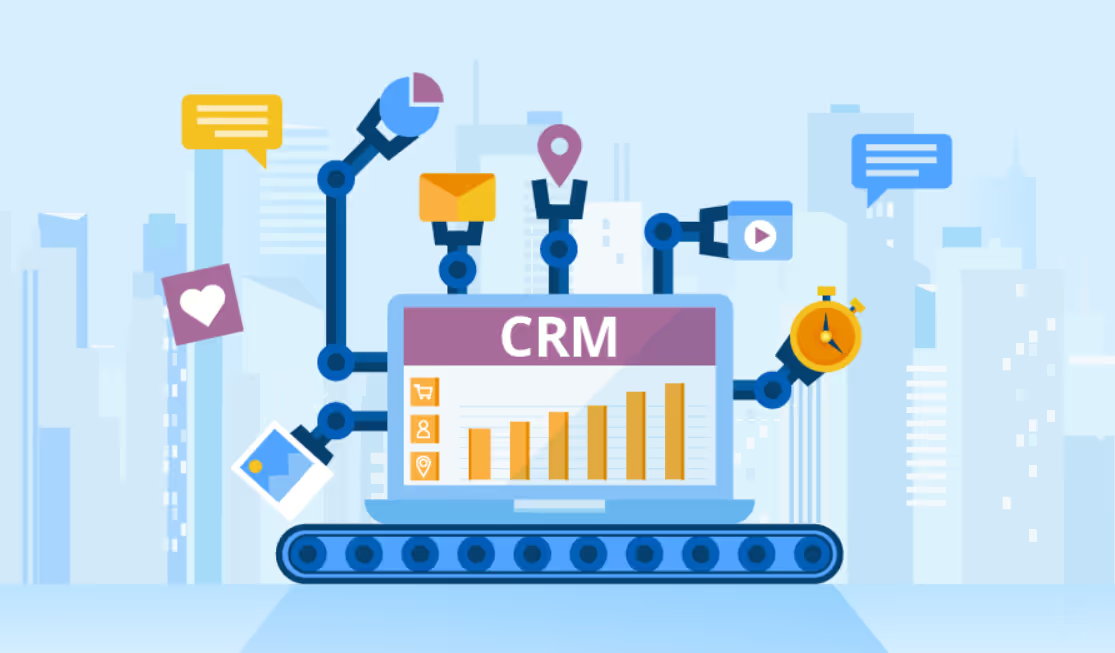
CRM with Marketing Automation
The synergy between CRM and marketing automation heralds a new era of efficiency in customer-centric strategies. Integrating CRM with marketing automation platforms enables businesses to align marketing and sales efforts seamlessly. This integration facilitates the creation of targeted marketing campaigns, personalized communications, and more effective lead nurturing.
The Dynamics of Automated CRM Workflow
Automation in CRM workflows goes beyond mere efficiency; it transforms how businesses operate. With automated workflows, routine tasks such as data entry, follow-up emails, and lead scoring are executed effortlessly. This not only reduces the risk of errors but also empowers teams to focus on high-value activities, propelling the organization toward its strategic goals.
What Is CRM Automation Capable Of?
CRM automation brings forth an array of benefits, Improving how businesses handle and grow customer relationships, leading to faster sales and happier customers. The effect is significant. Moreover, automated CRM processes contribute to data accuracy, ensuring that customer information remains up-to-date and relevant.
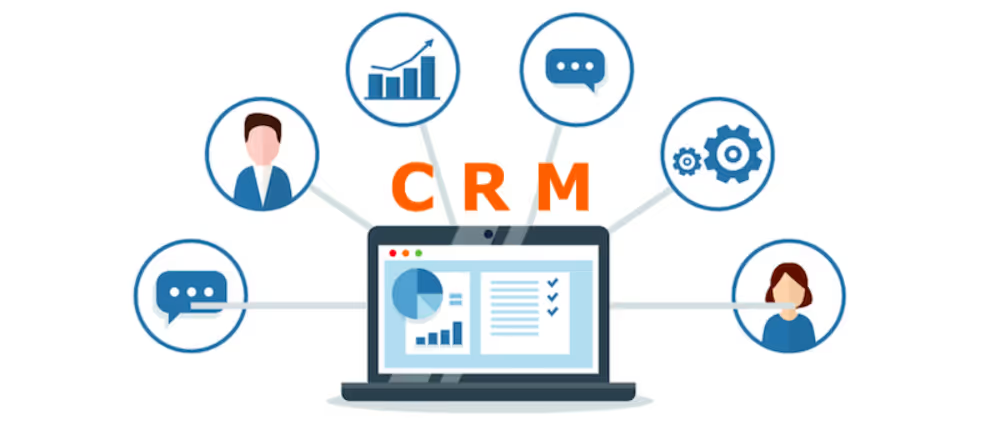
Marketing Automation and CRM Convergence
The Power of Personalized Campaigns
Marketing automation within CRM extends the capabilities of traditional CRM systems. It introduces features that enable businesses to craft targeted and personalized marketing campaigns. By leveraging customer data, businesses can send tailored messages, offers, and content, resulting in more meaningful interactions and higher conversion rates.
Automate CRM for Marketing Success
The integration of automation into CRM is not merely a technological augmentation; it is a strategic imperative for modern marketing success. Automated CRM processes allow marketers to track customer behavior, analyze data, and deploy timely and relevant campaigns. This real-time responsiveness ensures that marketing efforts are aligned with customer needs and preferences.
CRM Workflow Automation vs. Marketing Automation
CRM workflow automation and marketing automation both aim to improve efficiency, but they focus on different parts of the customer journey. CRM workflow automation handles internal operations, ensuring that tasks associated with customer management are executed seamlessly. Marketing automation, on the other hand, improves how businesses interact with their audience, making external activities more efficient.
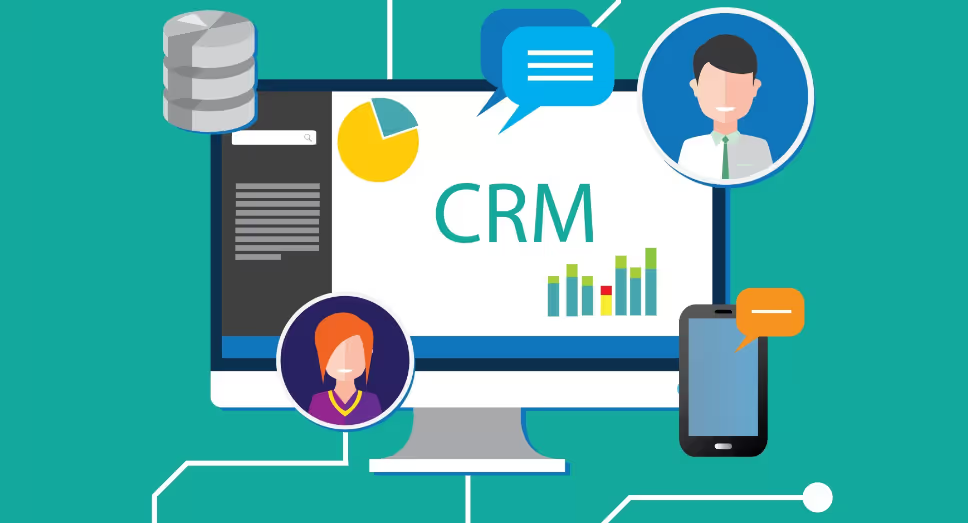
CRM vs. Marketing Automation
The comparison between CRM and marketing automation is not about pitting one against the other; instead, it's about recognizing their complementary roles. CRM is the backbone of customer data and relationship management. Marketing automation serves as the engine that drives targeted communication and campaign execution. Together, they form a symbiotic relationship that propels organizations toward holistic customer engagement.
Maximizing Marketing ROI with CRM Automation
In the realm of modern marketing, the amalgamation of Customer Relationship Management (CRM) and marketing automation has proven to be a game-changer. This synergistic partnership transcends conventional approaches, presenting businesses with unparalleled opportunities to maximize their Return on Investment (ROI) in marketing endeavors.
Targeted Campaigns with Precision
At the core of marketing CRM automation lies the ability to execute targeted campaigns with surgical precision. By leveraging CRM data, businesses can segment their audience based on demographics, behaviors, or past interactions. This segmentation allows marketers to tailor campaigns that resonate with specific customer segments, significantly enhancing the effectiveness of marketing efforts.
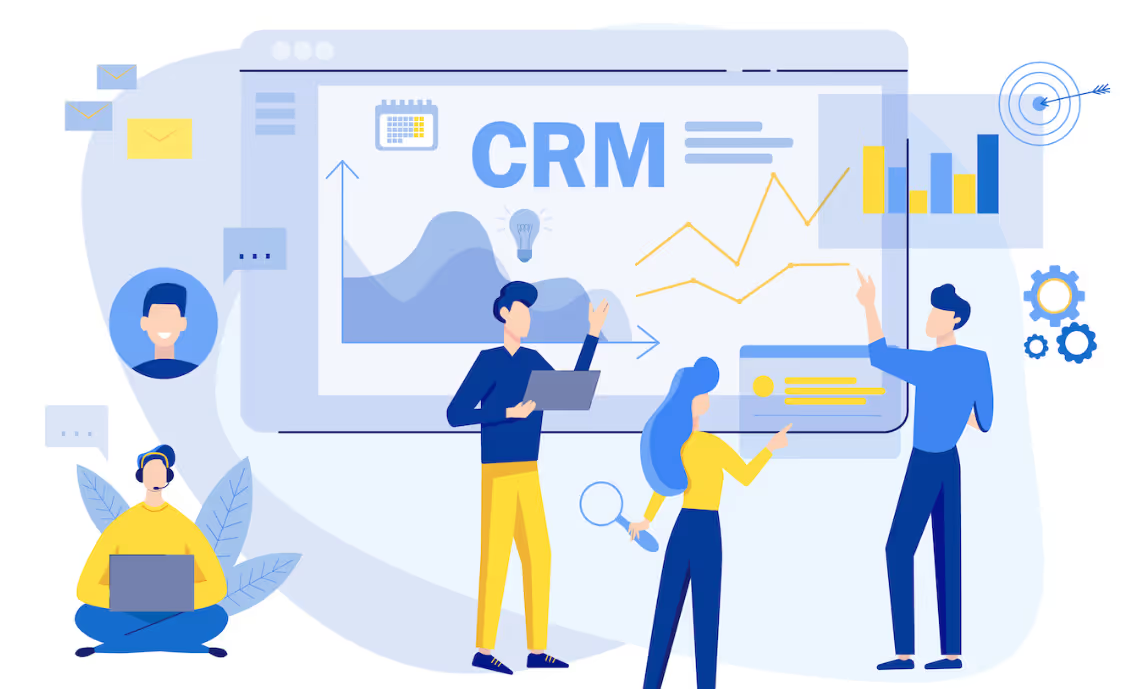
Lead Nurturing Strategies
One of the pivotal aspects of marketing CRM automation is its role in lead nurturing. Automated processes within CRM platforms enable businesses to nurture leads through personalized and timely interactions. From automated email sequences to targeted content delivery, CRM automation ensures that leads progress seamlessly through the marketing funnel, increasing the likelihood of conversion.
Scaling and maintaining consistent communication.
As businesses grow, it becomes difficult to communicate consistently and personally with more customers. Marketing CRM automation helps with this by offering scalable solutions. Automated workflows make sure that personalized communication continues, even as the customer base grows. This scalability is important for businesses that want to maintain and increase their marketing efforts in the long run.
Data-Driven Decision-Making in Marketing
The integration of CRM and marketing automation facilitates data-driven decision-making. Marketers can tap into rich CRM data to analyze customer behaviors, preferences, and engagement patterns. This data becomes the bedrock for formulating informed marketing strategies. Whether adjusting campaign messaging, refining target demographics, or optimizing the timing of marketing initiatives, data-driven insights empower marketers to make strategic decisions that resonate with their audience.
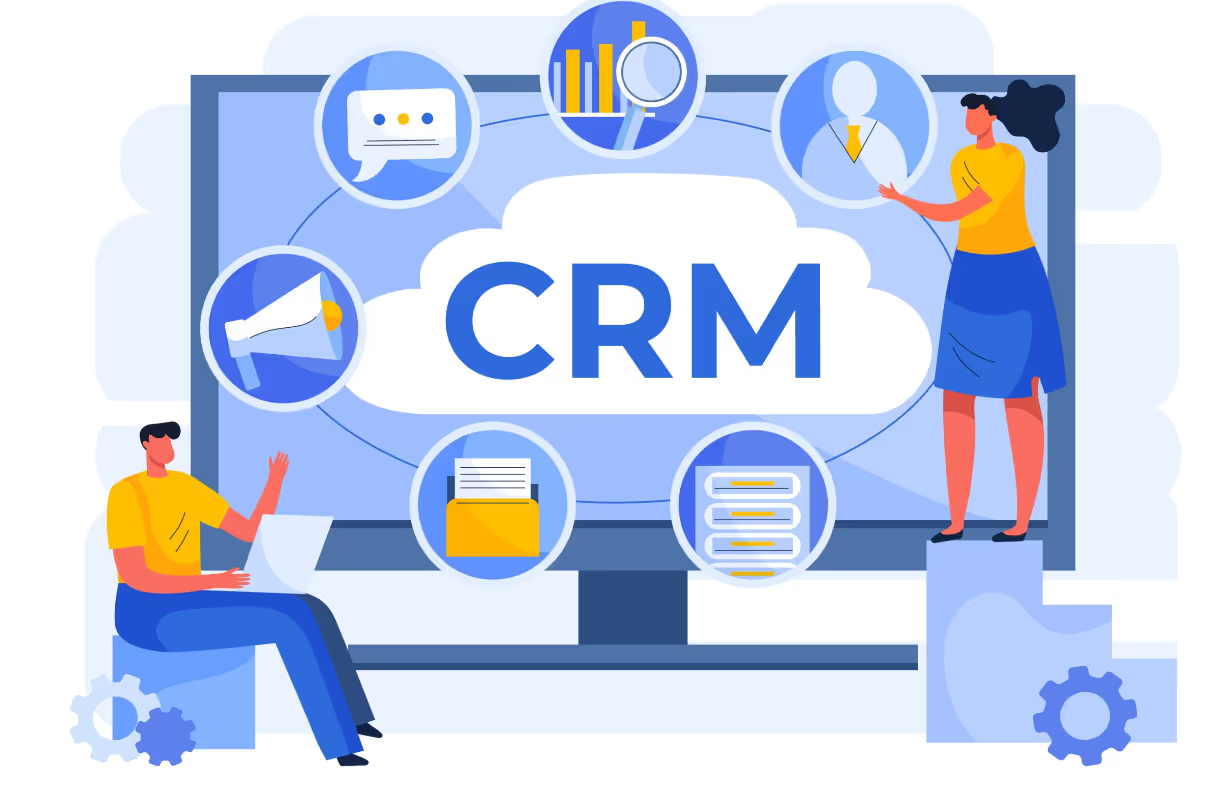
Streamlining Cross-Channel Marketing
In the era of omnichannel marketing, where businesses interact with customers across various platforms, maintaining a cohesive presence is paramount. Marketing CRM automation streamlines cross-channel marketing efforts. By centralizing customer data and communication history, businesses can ensure that the messaging remains consistent across channels, fostering a seamless and integrated customer experience.
Better scoring to prioritize leads
Efficient lead scoring is a cornerstone of successful marketing campaigns. CRM automation empowers businesses to implement sophisticated lead-scoring models based on various parameters, such as engagement level, demographics, and behavior. This automated lead scoring ensures that sales teams focus their efforts on leads with the highest likelihood of conversion, optimizing resource allocation and enhancing overall marketing efficiency.
Personalization at Scale
The era of personalized marketing demands a tailored approach for individual customers. Marketing CRM automation excels in delivering personalization at scale. Automated processes enable businesses to deliver personalized content, recommendations, and offers to each customer based on their unique preferences and behaviors. This level of personalization not only enhances customer engagement but also contributes to building lasting relationships.

Integration with E-commerce Platforms
For businesses operating in the e-commerce domain, the integration of CRM automation with online platforms is invaluable. Marketing CRM automation seamlessly integrates with e-commerce systems, allowing businesses to track customer journeys from browsing to purchasing. This integration enables targeted marketing campaigns, personalized product recommendations, and post-purchase engagement, maximizing the impact of marketing initiatives in the e-commerce landscape.
Analytics for Marketing Performance Evaluation
The robust analytics capabilities of marketing CRM automation provide marketers with comprehensive insights into the performance of their campaigns. From email open rates to conversion metrics, marketers can analyze key performance indicators (KPIs) in real-time. This analytical depth enables continuous optimization of marketing strategies, allowing businesses to adapt and refine their approaches based on actual campaign performance.
Customer needs to change and be adaptable
The dynamics of customer behavior are ever-evolving, requiring marketers to stay agile and adaptable. Marketing CRM automation equips businesses with the flexibility to adapt to changing customer dynamics. Whether it's adjusting communication strategies, introducing new campaign formats, or responding to shifts in market trends, the adaptable nature of CRM automation ensures that businesses remain in sync with their audience.

Navigating Success with Marketing CRM Automation
Furthermore, marketing CRM automation stands as a beacon for businesses seeking efficient lead scoring, seamless cross-channel integration, and analytics-driven insights. The adaptability of CRM automation ensures businesses stay ahead in a rapidly changing landscape, responding promptly to evolving customer behaviors. It's not just a tool; it's a strategic ally, guiding marketers toward sustained success in the ever-evolving realm of modern marketing.
Marketing Automation vs. CRM Selecting the Right Tool for the Task
Choosing between marketing automation and CRM depends on the specific needs and objectives of the organization. If the primary focus is on managing customer relationships, enhancing sales processes, and maintaining a centralized customer database, CRM is the go-to solution. Conversely, if the emphasis is on executing targeted marketing campaigns, lead nurturing, and analyzing marketing metrics, a dedicated marketing automation platform is the preferred choice.
Unlocking Efficiency with Drip Campaigns
Drip campaigns, integral to marketing automation, empower sales reps and team members in streamlining lead generation. This automated sales strategy involves sending targeted messages to prospects at strategic intervals and nurturing leads systematically. It's a potent marketing automation tool that ensures consistent engagement, fostering effective communication throughout the sales journey.
Conclusion
In the ever-evolving landscape of customer-centric strategies, the integration of CRM automation and marketing processes emerges as a beacon of efficiency and effectiveness. As businesses navigate the intricate interplay between CRM and marketing automation, they position themselves to not only meet but exceed customer expectations. Experience the power of CRM automation and seamless marketing integration. Sign up for a free trial today and unlock a new era of efficiency and customer satisfaction.








.avif)


